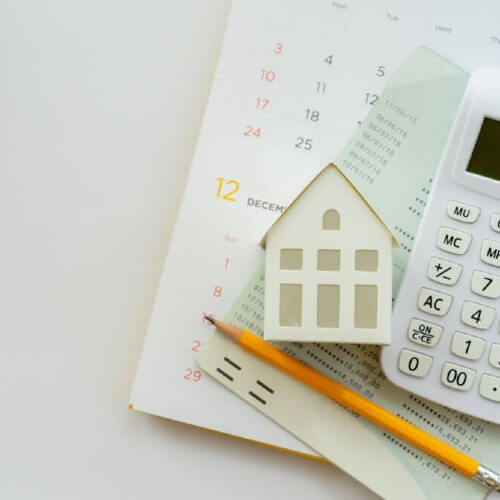 Written by James Hurwood
Written by James Hurwood
Reviewed by Stephen Zeller
Last updated 21/11/24
![]()
Our General Manager of Money, Stephen Zeller, has some handy tips for home buyers looking to calculate their principal and interest repayments.
If you want to calculate accurately, don’t ballpark your current loan balance – make sure you know it to the dollar! And that doesn’t just go for right now; you should be in touch with how much you owe over the entire life of the loan.
While calculating your payable principal and interest can give you a good idea of your home loan costs, don’t forget to account for the money you spend on fees! Otherwise, you could end up with an incomplete view of your mortgage and financial situation.
If you’re trying to find a lower interest rate (to hopefully pay a smaller amount of interest), we can help you look! Our online home loan comparison tool lets you compare a range of home loans and home loan interest rates – and if you find one you like, we can help you apply for it too!

Under a principal and interest home loan, repayments are comprised of a ‘principal’ amount (which goes towards paying off your home loan balance), and an interest amount (which covers the interest you’ve been charged by your lender).
The amount of money you’ll have to repay under a principal and interest home loan is determined by factors including the outstanding balance of your home loan, and the interest rate attached to your home loan.
To calculate your principal and interest repayments, you’ll want to first figure out your loan balance and interest rate. Then you’ll want to follow these steps:
Alternatively, you can use our simple home loan calculator above to quickly calculate your principal and interest payments.

The primary difference between the two types of home loan is their repayment type – you’ll make principal and interest repayments on a P&I home loan, and interest-only repayments on an interest-only loan.
However, it’s worth noting that you generally can’t hold an interest-only home loan for longer than five years, as typically an interest-only period ends after a maximum of five years – although this may vary by lender and product.
By contrast, a principal and interest home loan will typically stay that way during the loan term until either paid off or you end up refinancing to an interest-only home loan.
One type of home loan may be more or less suitable for your personal financial situation, so if you’re having difficulty understanding the differences between the two, you may want to speak to a financial advisor or counsellor.
The primary benefit of a P&I home loan is that your mortgage repayments are going towards paying down your principal balance as well as covering your interest costs. Additionally, principal and interest home loans may allow for additional repayments, letting you pay off even more of your principal balance.
Another benefit of P&I home loans is that, with all else being equal, you’ll typically pay less interest both in the short term and over the whole loan term, as P&I loans typically come with slightly lower interest rates than interest-only home loans.
That being said, because P&I home loan repayments have a principal amount as well as an interest amount, the repayment amount will typically be higher than that of a similarly-sized interest-only home loan.
The main benefit of interest-only home loans is that interest-only repayments will always be cheaper than principal and interest repayments on an identically sized home loan. Interest-only loans may also be beneficial for property investors, as they may be able to claim a tax deduction on their entire interest-only repayment.
The primary downsides of interest-only home loans are:
If you’re interested in learning more about interest-only home loans, you may want to speak to a financial advisor or counsellor.
![]()
Stephen has more than 30 years of experience in the financial services industry and holds a Certificate IV in Finance and Mortgage Broking. He’s also a member of both the Australian and New Zealand Institute of Insurance and Finance (ANZIIF) and the Mortgage and Finance Association of Australia (MFAA).
Stephen leads our team of Home Loan Specialists, and reviews and contributes to Compare the Market’s banking-related content to ensure it’s as helpful and empowering as possible for our readers.